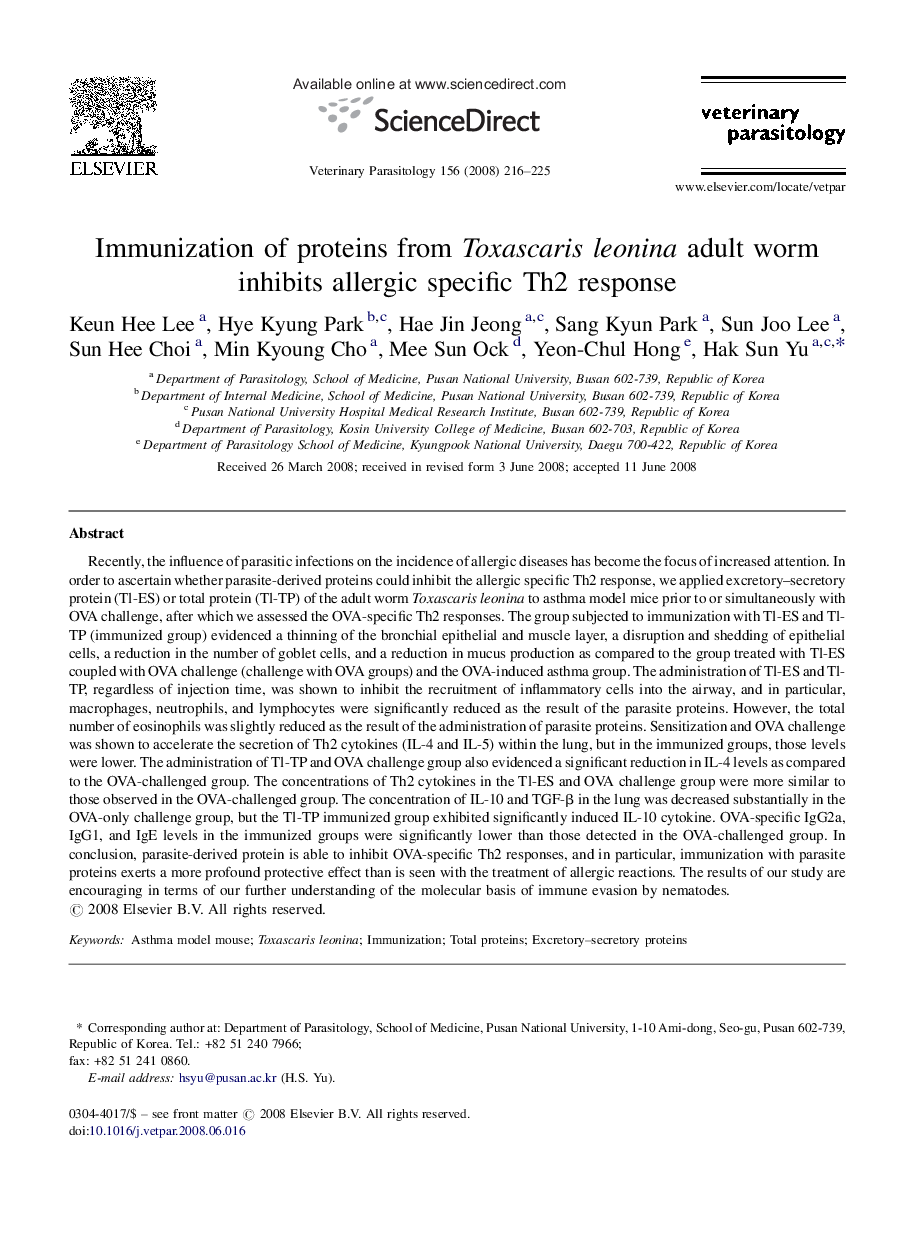| Article ID | Journal | Published Year | Pages | File Type |
|---|---|---|---|---|
| 2471569 | Veterinary Parasitology | 2008 | 10 Pages |
Recently, the influence of parasitic infections on the incidence of allergic diseases has become the focus of increased attention. In order to ascertain whether parasite-derived proteins could inhibit the allergic specific Th2 response, we applied excretory–secretory protein (Tl-ES) or total protein (Tl-TP) of the adult worm Toxascaris leonina to asthma model mice prior to or simultaneously with OVA challenge, after which we assessed the OVA-specific Th2 responses. The group subjected to immunization with Tl-ES and Tl-TP (immunized group) evidenced a thinning of the bronchial epithelial and muscle layer, a disruption and shedding of epithelial cells, a reduction in the number of goblet cells, and a reduction in mucus production as compared to the group treated with Tl-ES coupled with OVA challenge (challenge with OVA groups) and the OVA-induced asthma group. The administration of Tl-ES and Tl-TP, regardless of injection time, was shown to inhibit the recruitment of inflammatory cells into the airway, and in particular, macrophages, neutrophils, and lymphocytes were significantly reduced as the result of the parasite proteins. However, the total number of eosinophils was slightly reduced as the result of the administration of parasite proteins. Sensitization and OVA challenge was shown to accelerate the secretion of Th2 cytokines (IL-4 and IL-5) within the lung, but in the immunized groups, those levels were lower. The administration of Tl-TP and OVA challenge group also evidenced a significant reduction in IL-4 levels as compared to the OVA-challenged group. The concentrations of Th2 cytokines in the Tl-ES and OVA challenge group were more similar to those observed in the OVA-challenged group. The concentration of IL-10 and TGF-β in the lung was decreased substantially in the OVA-only challenge group, but the Tl-TP immunized group exhibited significantly induced IL-10 cytokine. OVA-specific IgG2a, IgG1, and IgE levels in the immunized groups were significantly lower than those detected in the OVA-challenged group. In conclusion, parasite-derived protein is able to inhibit OVA-specific Th2 responses, and in particular, immunization with parasite proteins exerts a more profound protective effect than is seen with the treatment of allergic reactions. The results of our study are encouraging in terms of our further understanding of the molecular basis of immune evasion by nematodes.
